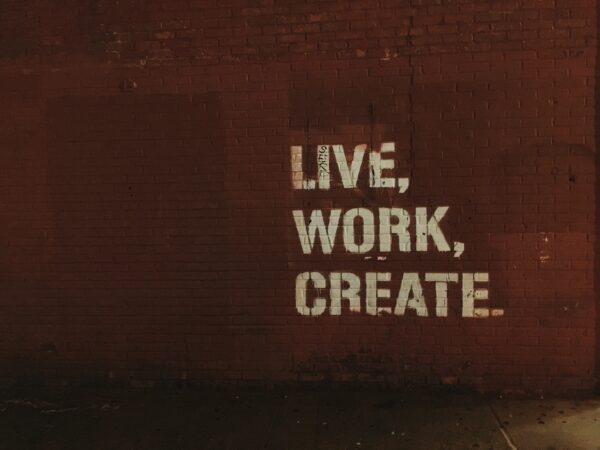In this series which appears in In Focus Magazine from The Guild of Television Camera Professionals, Jo Hodges and Liz Bell, camera operators and co-founders of Fusion Film and TV answer questions from readers and fellow camera operators on industry issues and give advice where needed.
The TV and film industry is particularly tough at the moment, with record numbers of our fellow professionals currently looking for work. At Fusion Film and TV, we too have experienced the challenges and are committed to supporting our community by sharing job opportunities as we find them over on our LinkedIn page. Despite the difficulties, there are still ways to navigate this time and even to thrive. Let’s stay positive and keep pushing forward together.
Ask Jo and Liz: Q1. I’ve worked as a freelance camera operator for a company for many years now but there has been a personnel change and I haven’t been asked to work for them for a while. I have tried contacting and asking for feedback but to no avail. I just feel really disappointed after all the work I’ve previously done and it’s really knocked my confidence. What can I do to get through this – particularly when work is so scarce at the moment?
I’m so sorry to hear about your situation. It’s really tough when long-term working relationships change unexpectedly, especially when you feel you’ve been dropped unfairly. Here are some steps you could take to rebuild your confidence and find new opportunities:
Allow yourself to feel disappointed, but recognise that this situation is not a reflection of your worth or abilities. Sometimes changes in companies are due to factors beyond our control. In this instance, it’s likely not about you.
You’ve tried asking for feedback—try again. Send a polite follow-up email asking for specific feedback. Ask for areas of improvement or what they appreciated about your past work. Inquire how you might get back on the books.
Reach out to your professional network. LinkedIn is great for this. Let them know you’re available for work. Opportunities often come from unexpected places. Ensure your post and profile are polished and include a clear “call to action.”
Join relevant online communities and engage with other camera operators. Obviously, the GTC Website and ours at Fusion Film and TV are great places to start plus LinkedIn pages are a good connection point too.
Use your downtime to learn new skills or improve existing ones. This boosts confidence and marketability. There are many free or affordable online courses on platforms like NFTS, Udemy, FutureLearn, and LinkedIn Learning.
Contact other clients you’ve worked with. They might have new projects or know someone who does. If you write an “open to work” post on LinkedIn, tag them.
Think about diversifying your services or exploring related fields where your skills are transferable. This can open up new avenues for work without requiring a permanent shift.
Try to keep a positive attitude despite financial stress. Rejection is normal in freelancing, and persistence pays off. Set small, achievable goals to maintain momentum.
Don’t forget to take care of your mental and physical health. Regular exercise, sleep, and a balanced diet can significantly impact both well-being and resilience.
If you are finding it hard to cope, consider speaking to a coach, counsellor, or therapist. They can provide strategies to manage stress and rebuild confidence. Remember, many freelancers face similar challenges, and setbacks can (and will) lead to new opportunities. Stay proactive and believe in your abilities.- Liz
Ask Jo and Liz: Q2. I’ve just gone freelance as a camera assistant and wanted to know if critical illness cover is worth it as my funds are tight at this early stage of my career.
Congratulations on going freelance as a camera assistant! Whether critical illness cover is worth it depends on several factors, especially considering your tight budget. Here are some points to help you decide:
Pros:
- If you’re diagnosed with a critical illness, you’ll receive a lump sum to cover living expenses, medical costs, and other financial burdens. This is crucial if you have regular bills like rent or a mortgage.
- Knowing you’re protected can reduce stress, allowing you to focus on recovery.
- The payout can be used for any purpose, including debt, rent, or supporting your family.
Cons:
- Premiums can be expensive, especially when funds are tight.
- Policies cover specific illnesses, which may not include all potential health issues.
- Waiting Periods and Exclusions: Some policies have waiting periods, and pre-existing conditions are often excluded.
Some alternatives and considerations:
- Income Protection Insurance: This might provide a more comprehensive safety net by covering a portion of your income if you’re unable to work due to illness or injury.
- Emergency Savings: Building an emergency fund can provide a buffer without the ongoing cost of premiums.
- Benefits: Depending on your situation, there may be benefits available for those unable to work due to illness.
Overall, we recommend that you evaluate your health and risk factors. If you have a higher risk of certain illnesses, insurance might be more worthwhile. Make sure you compare policies to find the best coverage and rates.
Given your tight budget, weigh the benefits against the costs. If you decide against critical illness cover, prioritise building an emergency fund and consider alternative insurance options. Please do consult a financial expert who can help you make the right decision. – Jo
Ask Jo and Liz: Q3. With things so quiet in the freelance world I honestly don’t know if I want to work in the TV Industry anymore. The only problem is when I was working the money was so much better than anywhere else so I feel like I’m stuck in a rut of negative ideas and new possibilities. How can I change this?
Feeling stuck in a rut, especially when it comes to career decisions, is a common experience. The Film and TV industry, as we all know only too well, can have fluctuating opportunities, leading to lots of uncertainty.
Here are some steps we’d recommend you consider for changing your mindset and exploring new possibilities:
First, take time to reflect on what aspects of the TV industry you enjoy and what parts you find frustrating or unsatisfying. Understanding your likes and dislikes can clarify whether the industry itself or specific job roles (or people!) affect your satisfaction.
Next, explore related fields where your skills and experience might also be valued. For example, roles in digital media, content creation, or marketing might offer similar financial rewards and creative fulfilment. Consider reaching out to your network in these areas to see what you need to do or work on, to diversify.
Additionally, consider upskilling your current skill set. Online courses or workshops in areas that interest you could open new career paths and increase your employability in different industries. This approach also helps in staying proactive and engaged during quieter periods.
It’s also essential to address the financial aspect of your concerns. Review your financial situation and see if there are ways to adjust your budget to accommodate potential changes in income. Sometimes, the perceived financial gap between careers may be less significant when factoring in benefits like job stability, work-life balance, flexibility, hours and job satisfaction.
Networking can also play a crucial role. Look at attending industry events, joining professional groups, and participating in online forums. Building connections can lead to new job opportunities, collaborations, or even freelance gigs that bridge the gap during slow periods.
Lastly, focus on maintaining a positive mindset no matter how trying these times are. Negative thoughts can be overwhelming and paralysing. Practice mindfulness or other stress-reduction techniques to stay centred and optimistic about your future. Setting small, achievable daily or weekly goals can help build momentum and provide a sense of accomplishment.
By combining self-reflection, exploration of new opportunities, skill development, financial planning, networking, and maintaining a positive mindset, you can break out of the rut and find a fulfilling career path that meets both your professional and financial needs. – Liz
Ask Jo and Liz by Jo & Liz at Fusion Film and TV









